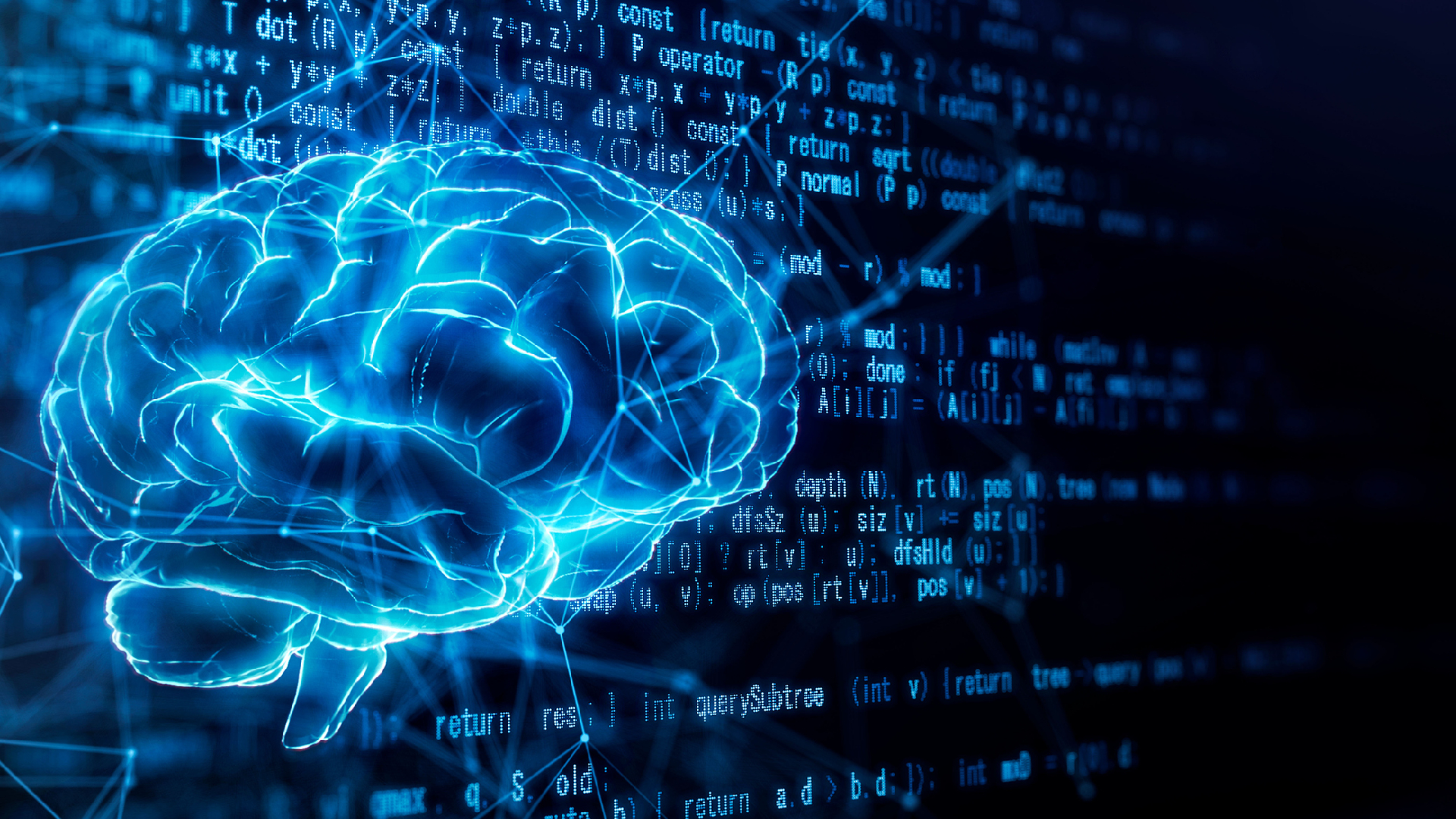Anorexia nervosa: Causes, symptoms & treatment
Anorexia nervosa is a complex and serious mental illness involving an obsession with food and weight

Get the world’s most fascinating discoveries delivered straight to your inbox.
You are now subscribed
Your newsletter sign-up was successful
Want to add more newsletters?

Delivered Daily
Daily Newsletter
Sign up for the latest discoveries, groundbreaking research and fascinating breakthroughs that impact you and the wider world direct to your inbox.

Once a week
Life's Little Mysteries
Feed your curiosity with an exclusive mystery every week, solved with science and delivered direct to your inbox before it's seen anywhere else.

Once a week
How It Works
Sign up to our free science & technology newsletter for your weekly fix of fascinating articles, quick quizzes, amazing images, and more

Delivered daily
Space.com Newsletter
Breaking space news, the latest updates on rocket launches, skywatching events and more!

Once a month
Watch This Space
Sign up to our monthly entertainment newsletter to keep up with all our coverage of the latest sci-fi and space movies, tv shows, games and books.

Once a week
Night Sky This Week
Discover this week's must-see night sky events, moon phases, and stunning astrophotos. Sign up for our skywatching newsletter and explore the universe with us!
Join the club
Get full access to premium articles, exclusive features and a growing list of member rewards.
It can be difficult to watch someone struggling with anorexia nervosa. It can be even more difficult to understand what makes them harm themselves in this way. You may feel powerless and unsure how to help – a lot of people have been in this position.
People who have anorexia nervosa try to keep their weight as low as possible by not eating enough food, exercising too much, or both. They often have a distorted image of their bodies, thinking they're overweight when they are actually underweight. They can often experience health problems due to starvation too.
Anorexia nervosa is a complex and dangerous mental illness. According to a review published in the Current Opinion in Psychiatry, people who experience this eating disorder are five times more likely to die from medical complications or suicide. In fact, anorexia nervosa has the highest mortality rate of any mental illness.
There are many factors that cause anorexia. Similarly, there isn’t a single approach that cures it. In this article, we spoke to mental health experts about the causes, symptoms and treatment options for anorexia nervosa. If you or someone you know is suffering from an eating disorder, it is essential that you speak to a doctor.
What is anorexia nervosa?
According to The National Eating Disorders Association, anorexia nervosa is an eating disorder characterized by weight loss, difficulties maintaining an appropriate body weight, and distorted body image. People with anorexia nervosa are usually driven by an intense fear of gaining weight, which makes them restrict the calories and the types of food they eat.
Some people with this eating disorder also exercise compulsively, purge (the act of making themselves vomit or using laxatives, diuretics and colon cleanses) and/or binge eat. Anorexia nervosa is more common among women. According to the Current Opinion in Psychiatry, it affects up to 4% of women and 0.3% of men, regardless of age, sexual orientation, race or ethnicity.
According to the Mayo Clinic, anorexia nervosa is not really about food, although it may well start with regular dieting. Anorexia is a self-destructive way of coping with emotional problems. When you have this eating disorder, you often equate thinness with a sense of control and self-worth. However, you cannot tell if someone is struggling with anorexia just by looking at them. A person does not need to be severely underweight to be battling this eating disorder. Studies have found that larger-bodied individuals can also suffer from anorexia nervosa, although they may be less likely to get appropriate diagnosis and treatment. That’s why the latest edition of The Diagnostic and Statistical Manual of Mental Disorders (DSM-5) includes atypical anorexia as a separate illness.
Get the world’s most fascinating discoveries delivered straight to your inbox.
Anorexia nervosa: Causes
“We still do not know the exact causes,” says Dr Amit D Mistry, a consultant psychiatrist in eating disorders at Cygnet Health Care. “Anorexia nervosa is a complex illness and is related to a combination of different predisposing factors. When we formulate a patient’s illness we are trying to explore potential external triggers, genetic risk and circumstances that have influenced this dangerous, restrictive way of food consumption.”

Dr Amrit D Mistry, MBChB, MRCPsych, BSc, is a dual consultant specialist in General Adult and Old Age Psychiatry. Dr Mistry holds additional clinical expertise in treating eating disorders and exercise addiction. He is the Responsible Clinician (RC) to a central London specialist inpatient unit and has previously worked as a community consultant for Oxford Health NHS Foundation trust. He is also the chair of the Royal College of Psychiatrists' Sport & Exercise Psychiatry Group.
“It’s partly genetic, partly neurobiological, and partly environmental,” says Dr Daniela Beivide, a PhD in psychological medicine and a specialist in disordered eating behaviors at Holly Health. “Whether or not someone develops anorexia will depend on a combination of all of these factors.”
Certain individuals are at much higher risk of developing anorexia. According to a review published in the Current Psychiatry Reports, people with this eating disorder may have faulty serotonin genes. Serotonin is a crucial mood stabilizing neurotransmitter that’s often lacking in those with depression and anxiety.
“In up to 75% of cases, anorexia nervosa is accompanied by other mental health disorders,” says Beivide. Many studies have shown a strong two-way link between anorexia nervosa and anxiety disorders. Scientists from the Clinical Psychology Review journal have also connected it to body dysmorphic disorder. Moreover, there’s growing evidence that individuals on an autistic spectrum are particularly likely to develop anorexia.
Childhood trauma may play a crucial role in triggering the onset of this disease. “There is evidence to suggest higher risks in those with a positive family history of eating disorder and those who experienced significant stressors during critical development stages of their life,” says Mistry.

Traumatic events can affect how a person handles social situations later in life. Indeed, women with anorexia nervosa tend to struggle with relationships and dysregulated emotions, as described in a review published in the Neuroscience and Biobehavioral Reviews journal. Many studies have also suggested that not having a good support network is an important contributing factor.
One of the reasons why it’s difficult to recover from anorexia nervosa is that this disorder profoundly changes how the brain functions. “Once anorexia is entrenched, it can alter the way in which individuals process information and this cognitive shift can drive behaviors that serve to keep the eating disorder going – behaviors that may not have been present in the early stages,” says Dr Lynne Green, the chief clinical officer at Kooth and a consultant clinical psychologist.
According to the Psychology & Behavior journal, anorexia can rewire the reward center in the brain, affecting how one perceives food and exercise. Results from magnetic resonance imaging studies also suggest that in people with anorexia nervosa, distorted body image is rooted in abnormal brain activity. All of these changes reinforce food avoidance behaviors and may explain why so many sufferers repeatedly relapse.
Anorexia nervosa: Warning signs and symptoms
Physical signs of anorexia include:
- Dramatic, unexplained weight loss
- Gastrointestinal issues, such as stomach cramps, constipation and acid reflux
- Clinical symptoms of malnutrition, such as anemia and low thyroid hormone levels
- Dizziness, fainting and slower heart rate
- Feeling cold all the time
- Trouble sleeping
- Irregular periods or absence of menstruation
- Teeth problems, such as enamel erosion, cavities, and tooth sensitivity
- Dr skin, hair and nails
- Swelling around salivary glands
- Soft, fine hair on body (lanugo)
- Muscle weakness
- Cold hands and feet or swelling of feet
- Poor wound healing
- Frequent infections
Changes in behaviour:
- Dresses in multiple layers to hide weight loss or stay warm
- Obsesses over the nutritional content of foods
- Refuses to eat certain foods or excludes entire food groups
- Develops food rituals, such as excessive chewing or eating foods in certain order
- Makes frequent comments about feeling overweight despite weight loss
- Denies feeling hungry and constantly makes excuses to avoid situations involving food
- Often cooks meals for others, but doesn’t eat anything
- Exercises excessively
- Becomes more isolated, withdrawn, and secretive
- Resists to maintain an appropriate body weight
- Has intense fear of weight gain, no matter how underweight they are
- Denies any eating problems
- Has strong need for control and may struggle with expressing emotions
Anorexia vs bulimia
Anorexia and bulimia are serious eating disorders that are most common in adolescent women. Both conditions are centered around body-image issues and dissatisfaction with body weight. Anorexia and bulimia may have many overlapping symptoms, but their food-related behaviors are not the same. They may also have different causes and risk factors involved.
People with bulimia will eat large amounts of food and overcompensate by purging what they’ve eaten. This cycle of binging and purging leads to intense feelings of guilt and shame. Bulimia nervosa is often associated with depression, anxiety and self-harm behaviors, such as cutting and substance abuse.
How is anorexia nervosa diagnosed?
“Anorexia nervosa is a clinical diagnosis and must be assessed by a trained clinician. This can be a psychiatrist, psychologist or trained physician,” says Mistry. “Diagnosis is not solely based on low weight status but explores an individual’s thoughts, behaviors and the impact this is having on daily function. Often, this will be associated with physical health complications directly related to severe malnutrition.”
“The main symptoms of anorexia nervosa include a disturbed body image and extreme fear of food and body weight,” adds Beivide. “Patients with anorexia often display a variety of weight control behaviors such as food restriction, excessive exercise, self-induced vomiting or laxative use.”
Anorexia nervosa is diagnosed using the Diagnostic and Statistical Manual of Mental Disorders – Fifth Edition (DSM-V). To be diagnosed with this eating disorder, the following criteria must be met:
- Severe calorie restriction leading to an abnormally low body weight
- Intense fear of gaining weight or becoming fat, even though underweight
- Disturbed perception of one’s body weight or shape, undue influence of body weight or shape on self-evaluation, or denial of the seriousness of the current low body weight

In atypical anorexia, individuals meet the criteria for anorexia but are not underweight despite significant weight loss. Otherwise, there is no difference in the medical and psychological impacts between anorexia and atypical anorexia.
However, Green points to the need to recognize individual differences. “What is important is that we pay close attention to the individual experiences of each person rather than focus on whether or not they fit neatly within a diagnostic ‘box’,” she says.
What are the risks and complications of anorexia?
Malnutrition
Long-term starvation depletes the body of essential nutrients, which can result in emaciation, electrolyte imbalances, and serious health consequences. “Over time, these physical risks become irreversible as we have lost the therapeutic ‘window of opportunity’. Unfortunately, this will have a detrimental impact on physiological parameters, quality of life and daily function,” says Mistry.
Starvation is particularly dangerous to the liver. As described in Digestive Diseases and Sciences, anorexia can lead to liver cell death and severe metabolic disturbances. Malnutrition is even more hazardous to young people whose bodies are still developing. According to a review published in the Current Opinion in Pediatrics, adolescents are at much higher risk of irreversible bone loss, organ failures and brain volume deficits.
Cognitive impairment
According to a review published in the Nutrients journal, starvation causes memory problems, trouble concentrating, poor attention span and problems with learning and decision making. It also amplifies anxiety and affects how a person processes emotions.
Gastrointestinal issues
Anorexia nervosa can inflict long-lasting damage to the gastrointestinal system. “The repeated acts of purging can cause dehydration, damage the endocrine glands, interfere with digestion and hinder the absorption of crucial nutrients,” says Abbas Kanani, a pharmacist at Chemist Click. Low food volume will also lead to shrinking of the stomach, tissue damage and poor digestion. People with this eating disorder frequently report symptoms like bloating, diarrhea, nausea, constipation, acid reflux, irregular bowel movements and indigestion. Moreover, anorexia can reduce the amount of good bacteria in the gut.
Heart problems
Many patients with anorexia nervosa develop serious cardiovascular problems. “The heart and blood vessels are likely to struggle with poor circulation and irregular heartbeat due to a lack of nutrients in the body, making you more prone to low blood pressure, heart failure and swelling in the face, hands and feet,” explains Kanani.
Echocardiography studies also reveal far-reaching changes to the structure and functioning of the heart muscle. And according to the International Journal of Eating Disorders, this eating disorder can lead to disrupted heart rate and altered blood flow in the body.
Musculoskeletal issues
Anorexia nervosa leads to significant loss of muscle and bone tissue. It also makes muscles less functional, as described in the Clinical Physiology journal. One of the most dangerous consequences of anorexia is osteoporosis. According to a review published in the Eating Disorders journal, bones may never recover even once weight is restored.
Anorexia nervosa: Treatment
Anorexia nervosa tends to be treated with a combination of talking therapy and supervised weight gain. Some patients may also be prescribed antidepressants or mood-stabilizing medications. The process of reintroducing food needs to be slow and gradual to avoid the so-called refeeding syndrome. Refeeding syndrome includes many hormonal and metabolic changes that may be dangerous to health.
There are many different psychological treatments for anorexia nervosa. Children and adolescents tend to benefit most from family-based interventions, as described in the Lancet Psychiatry journal. Whereas according to a review published in the Current Opinion in Psychiatry, adults tend to respond better to treatments like Maudsley Anorexia Nervosa Treatment for Adults (MANTRA), Cognitive Behavior Therapy-Enhanced (CBT-E) and Specialist Supportive Clinical Management (SSCM).
Scientists are also looking into Deep Brain Stimulation as a potential treatment for the most severe anorexia cases. According to an article published in the British Journal of Neurosurgery, this technique can help with compulsive behaviors and anxiety and increase the chances of recovery.
This article is for informational purposes only, and is not meant to offer medical advice.
Additional resources

Anna Gora is a health writer at Live Science, having previously worked across Coach, Fit&Well, T3, TechRadar and Tom's Guide. She is a certified personal trainer, nutritionist and health coach with nearly 10 years of professional experience. Anna holds a Bachelor's degree in Nutrition from the Warsaw University of Life Sciences, a Master’s degree in Nutrition, Physical Activity & Public Health from the University of Bristol, as well as various health coaching certificates. She is passionate about empowering people to live a healthy lifestyle and promoting the benefits of a plant-based diet.
 Live Science Plus
Live Science Plus










